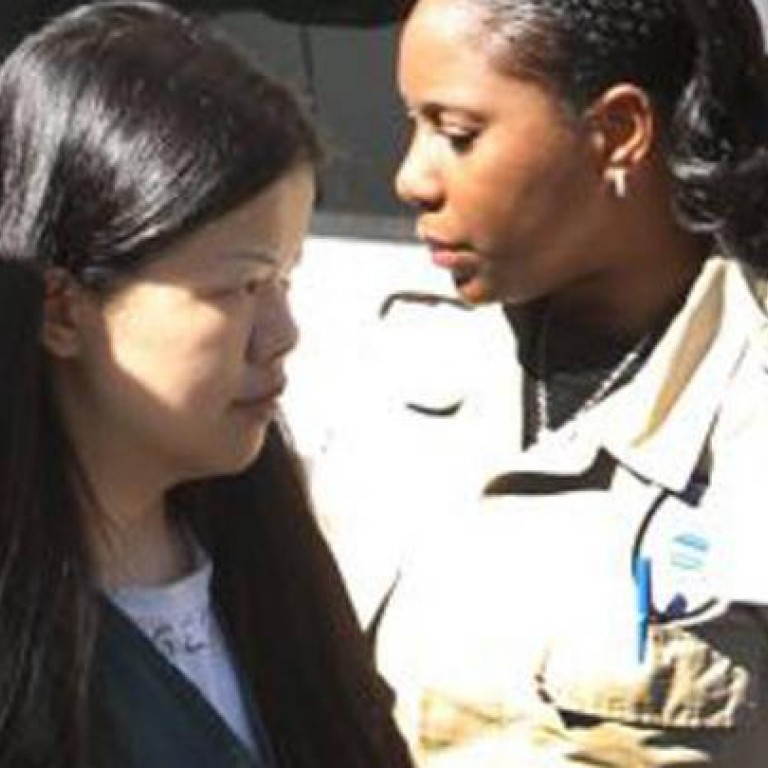
Hong Kong, Taiwan and mainland middlemen help Iran obtain banned components
Middlemen in the mainland, Hong Kong and Taiwan are helping Tehran obtain crucial US-made components for its nuclear programme
When Susan Yip stood before a US federal judge in San Antonio last month, she apologised tearfully for her role in smuggling American technology to Iran.
Yip, a Taiwanese businesswoman, was sentenced on October 24 to two years in jail after pleading guilty to obtaining or trying to obtain more than US$2.6 million worth of parts and materials that could be used in nuclear weapons, missile guidance systems and radio jammers. The scheme involved 599 transactions with 63 US companies.
Her case is the latest example of what US officials describe as a worrisome trend: Asian companies and middlemen helping Iran illicitly obtain crucial components from American suppliers in violation of US export controls and international sanctions.
US prosecutors have brought eight such cases to court since 2010. They say other cases have not been made public because indictments are sealed or defendants are secretly co-operating.
"Our investigations in recent months have uncovered a growing number of networks illegally exporting restricted US-origin technology, including munitions and materials with nuclear applications, to Iran, through front companies in China and Hong Kong," said Dean Boyd, a Justice Department spokesman.
The Treasury Department has blacklisted hundreds of companies and dozens of individuals around the world, limiting their ability to travel or do business with most banks, for allegedly helping Iran evade sanctions. The Justice Department focuses on prosecuting those who sell Iran military or nuclear technology bought from US companies.
In the past, Tehran relied on front companies in Malaysia and in the United Arab Emirates, experts say. Both governments have cracked down on the smuggling of technology with military applications amid growing international concern that Iran may be planning to build nuclear weapons. Businessmen from China, Taiwan, and Singapore have partly filled the void.
China and some other Asian countries "just don't enforce export controls and sanctions very well", said Andrea Stricker of the Institute for Science and International Security, which tracks Iran's nuclear programme.
In June, Frank Figliuzzi, then the FBI's counterintelligence chief, told Congress that the bureau's counterproliferation centre had arrested "multiple subjects" on the CIA's Top 10 Proliferators List since July 2011. The FBI and CIA both refused to publicly divulge who was on the list.
In July, a federal grand jury in Washington indicted Yi Zongcheng, a Chinese citizen, and Parviz Khaki, an Iranian, for allegedly trying to illegally export to Iran materials for gas centrifuges used to enrich uranium.
Posing as a toymaker in China, Yi tried to order 20 tonnes of maraging steel, which is used in centrifuges, from US companies. He also tried to buy special measuring instruments, mass spectrometers, lathes, radionuclides and nickel alloy wire - all important for Iran's nuclear programme, court documents said.
A US investigator posed as an illegal exporter and set a trap. Khaki was arrested in the Philippines in June and is fighting extradition to the US. Yi is at large.
In October 2011, the Justice Department charged four Singapore residents who did business in Hong Kong over allegedly exporting 6,000 radio frequency modules from an unnamed Minnesota company to front companies in East Asia before rerouting the shipments to Iran.
Sixteen of the modules were later recovered in remote detonation devices for unexploded roadside bombs in Iraq, according to the indictment.
Yip, 35, who co-operated with US prosecutors in exchange for a reduced sentence, operated trading companies in Taiwan and Hong Kong. An Iranian partner, Mehrdad Foomanie, told her what to buy in the US.
Yip shipped the goods to Foomanie through another partner in Dubai, ostensibly to customers in Taiwan or Hong Kong.
In May, Yip was lured to a US jurisdiction and arrested. Her partners remain at large.
